I'm a Souls skeptic — here's how Elden Ring won me over
Elden Ring has taken over my life, but the challenging game isn't for everyone
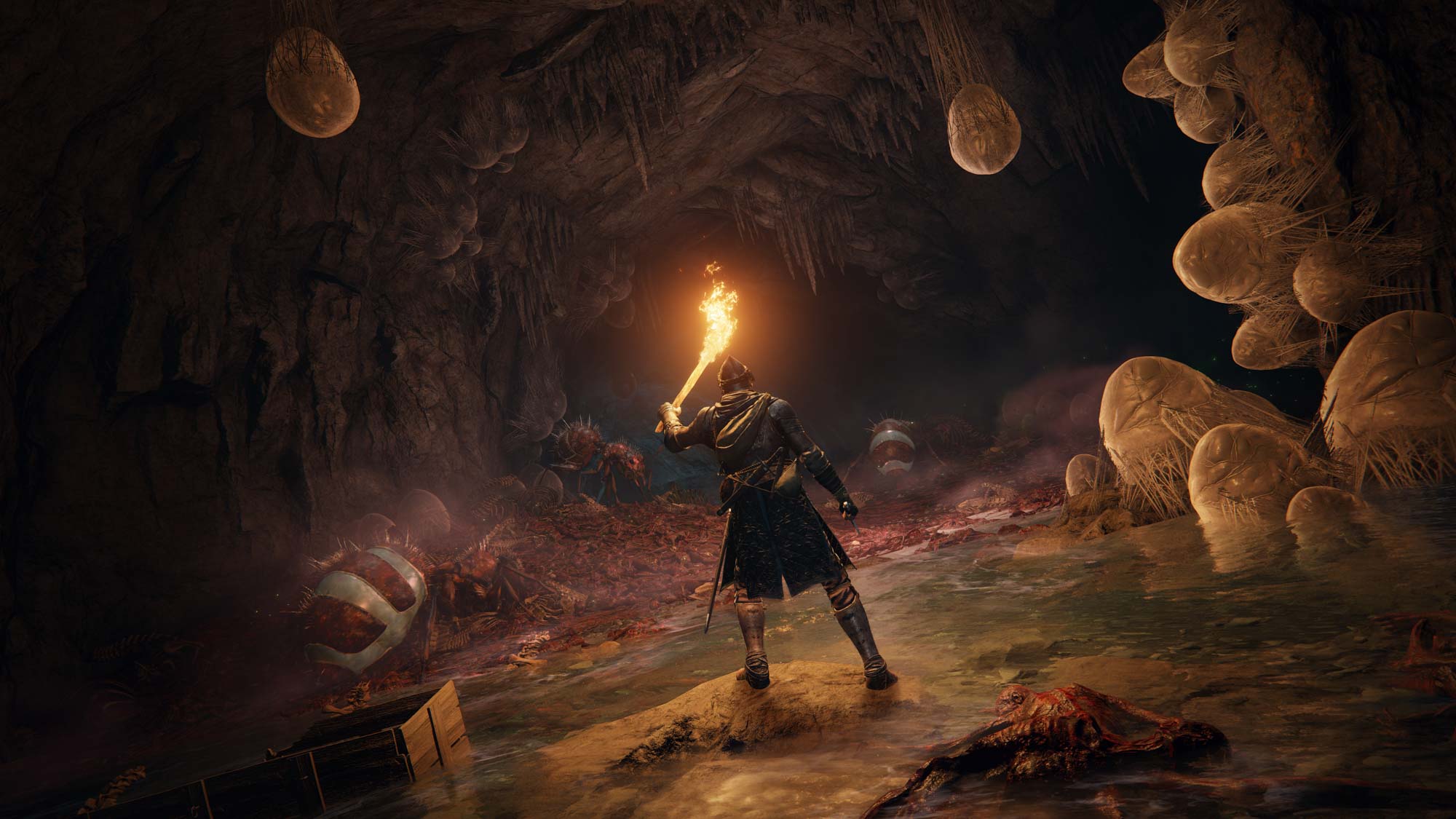
To be completely honest, I wasn’t all that interested in Elden Ring prior to launch. I didn't have any concerns about the game’s overall quality — I'd never bet against FromSoftware — but I have a fairly complicated history with the Dark Souls series.
I’d consider myself a Souls skeptic (although recently Demon's Souls really caught my attention on PS5) While I've always admired From’s particular brand of tough-as-nails RPGs from afar, they never quite clicked with me. I assumed Elden Ring would be more of the same, and instead reserved my hype for the glut of other February games, such as Dying Light 2 Stay Human, Sifu and Horizon Forbidden West.
Once Elden Ring's phenomenal reviews started pouring in, my resolve weakened and quickly crumbled. I just couldn’t ignore a game that some outlets heralded as not just a GOTY contender, but a potential GOAT. So, last weekend, I took the plunge into the Lands Between, expecting to once again struggle as I found my footing.
Within just a few hours, though, I was hooked. Don't get me wrong: Elden Ring shares so much DNA with Dark Souls that it should have been called Darks Souls 4 for simplicity's sake. But a few smart additions, including an expansive open world and slightly more generous safeguards, have convinced me to evangelize along with the rest of the previously converted choir.
Trying (and mostly failing) to fall in love
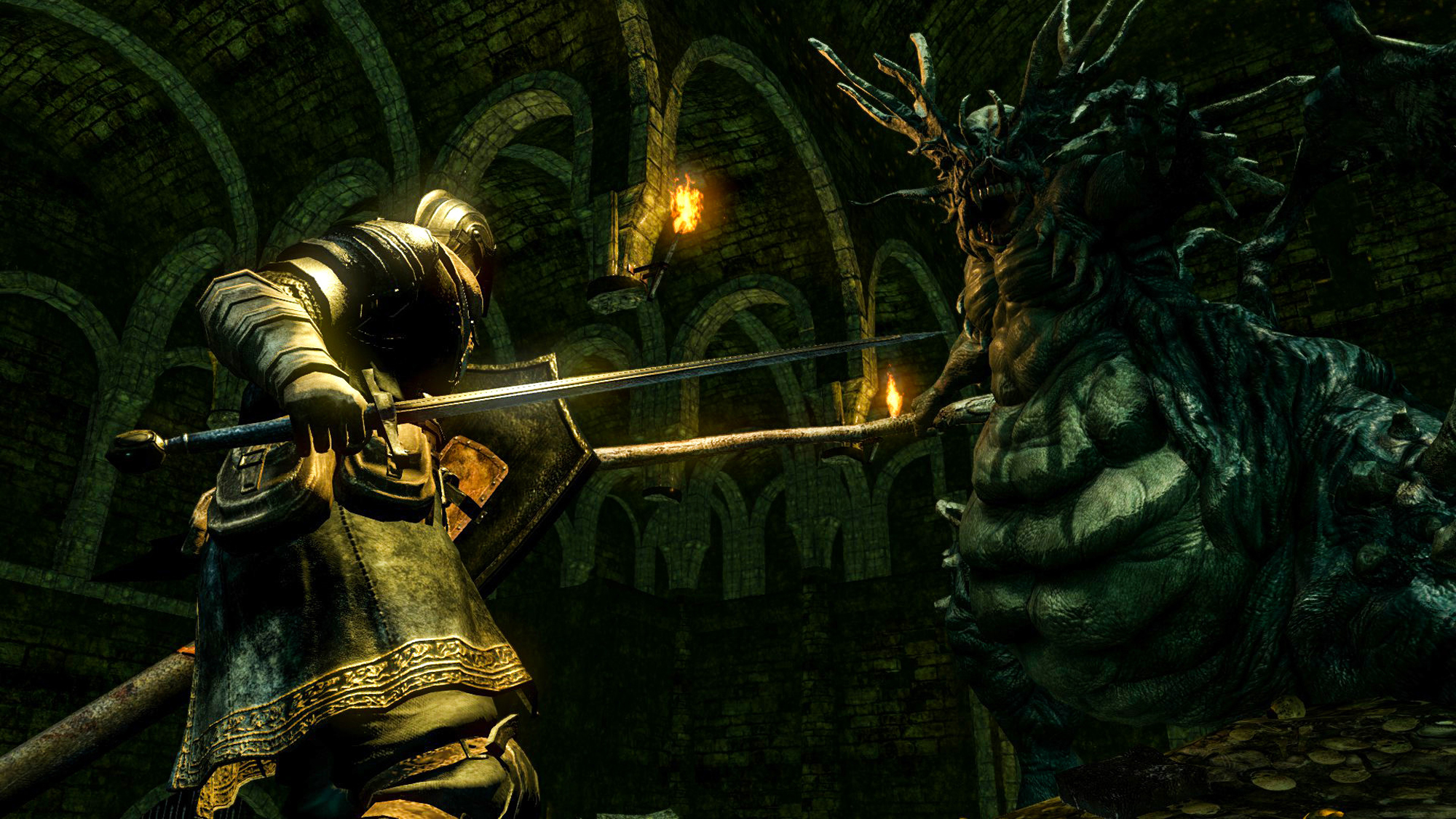
In 2011, Japanese developer FromSoftware changed gaming with the release of Dark Souls, a spiritual sequel to the cult PS3 hit Demon’s Souls. This tough-as-nails action/RPG essentially birthed a whole new genre of games, referred to as Soulslikes, and a passionate army of fans.
Since then, From has released two direct follow ups, as well as a spiritual sequel, Bloodborne. Plus, Demon’s Souls got a full remake on the PS5 by Bluepoint Games. From’s 2019 release, Sekiro: Shadows Die Twice, also shares plenty of similarities to Dark Souls, even if its combat mechanics are fundamentally different.
Over the years, I’ve tried all of these games (except for Dark Souls 2, the most divisive game in the collection) to varying degrees, but I’ve never quite been hooked. This was primarily because Souls games have typically fallen on the wrong side of the fine line between frustration and fun for me.
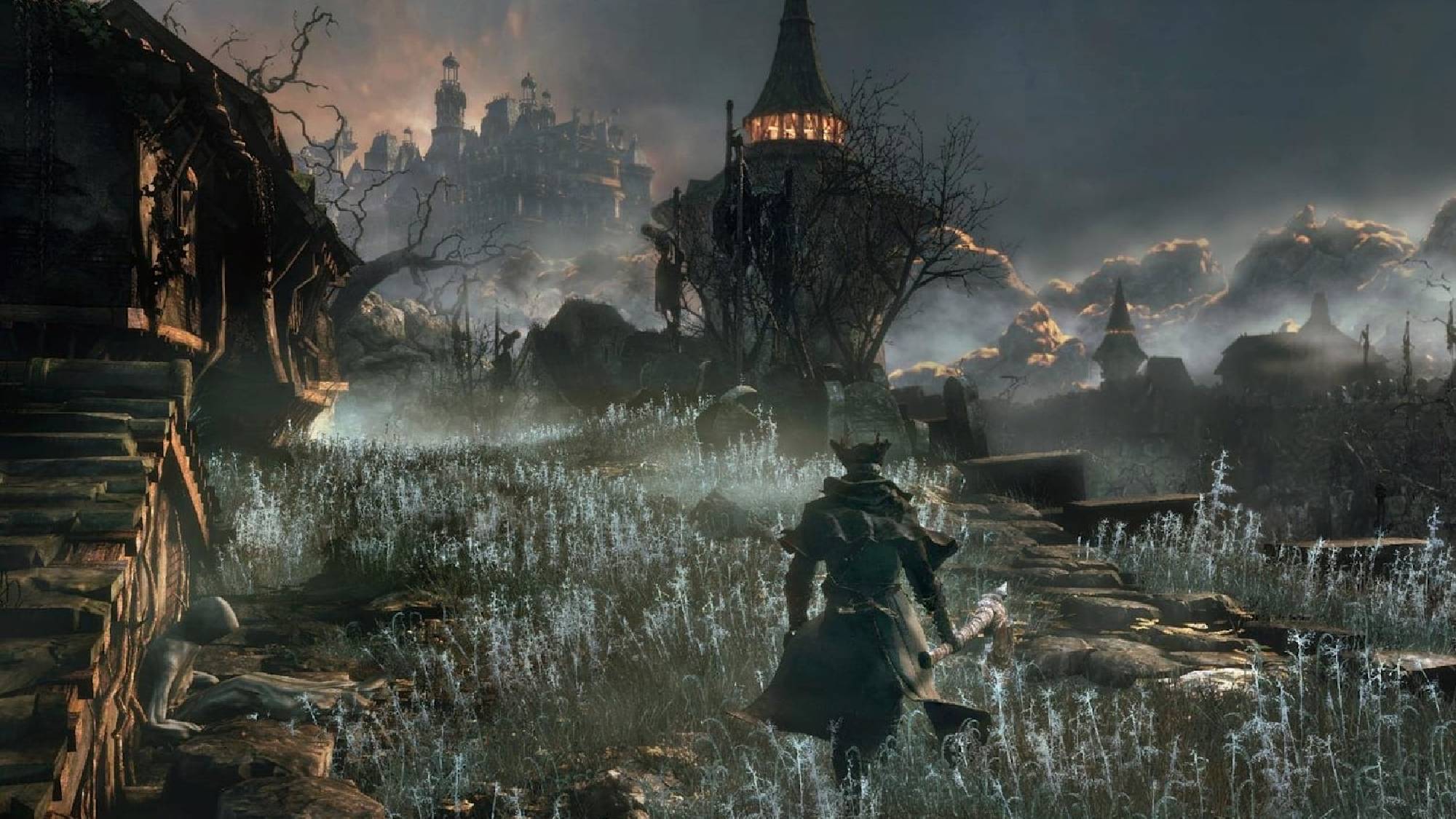
I have no problem with challenging games. I consider Cuphead one of the greatest games ever made, and Returnal was my pick for our Game of the Year award 2021. (I was outvoted, and Deathloop ultimately won.) However, when I played the first Dark Souls game, I often felt like I was banging my head against a brick wall, without making any tangible progress to show for my efforts.
Granted, back in 2015, I did beat Bloodborne. Its focus on aggressive combat really suited my playstyle, and its gothic-horror world gripped me far more than Dark Souls’ fantasy one. Even so, I’ve never considered myself a Souls advocate. I just assumed that From's very particular style of game didn't appeal to my specific tastes. Then, Elden Ring came along.
Elden Ring’s open world is a game changer
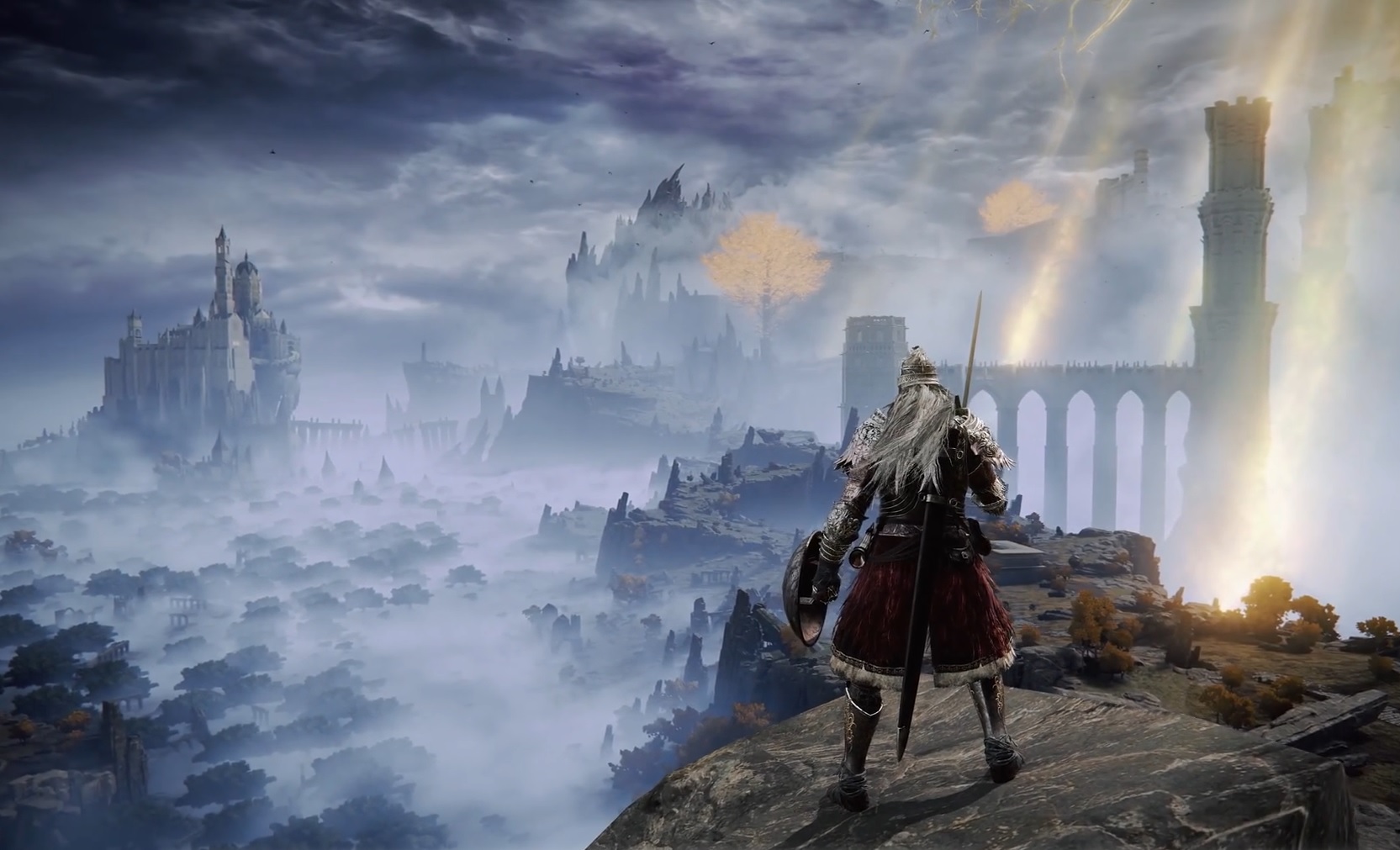
Previous Souls games were somewhat open. Players had the freedom to venture off the beaten path, backtrack, and discover optional areas and bosses at their leisure. However, Elden Ring is the first truly open-world game in the Souls style.
It's almost impossible to quantify how much of a difference this makes. Calling it a "game changer" almost feels like selling it short. The open world of Elden Ring is deeply immersive. I've praised Horizon Forbidden West for taking smart cues from Breath of the Wild, but Elden Ring doesn’t just take a few cues: It essentially copies the same formula, and to equally great success.
Rather than a map littered with dozens of overwhelming icons and mission markers, such as Assassin’s Creed Valhalla or Dying Light 2, Elden Ring keeps things simple. The game vaguely points you in the direction you’re supposed to go, then leaves you to figure out the exact route.
There’s also so much to discover if you step away from the critical path. Most of my time with Elden Ring so far feels worthwhile. I’ve sparred against a pumpkin-headed giant, and discovered an elevator that descends deep into an underground cavern, filled with nightmare clay monsters. These represent just the tip of the iceberg, but I would feel bad for spoiling any more of the game's numerous secrets.
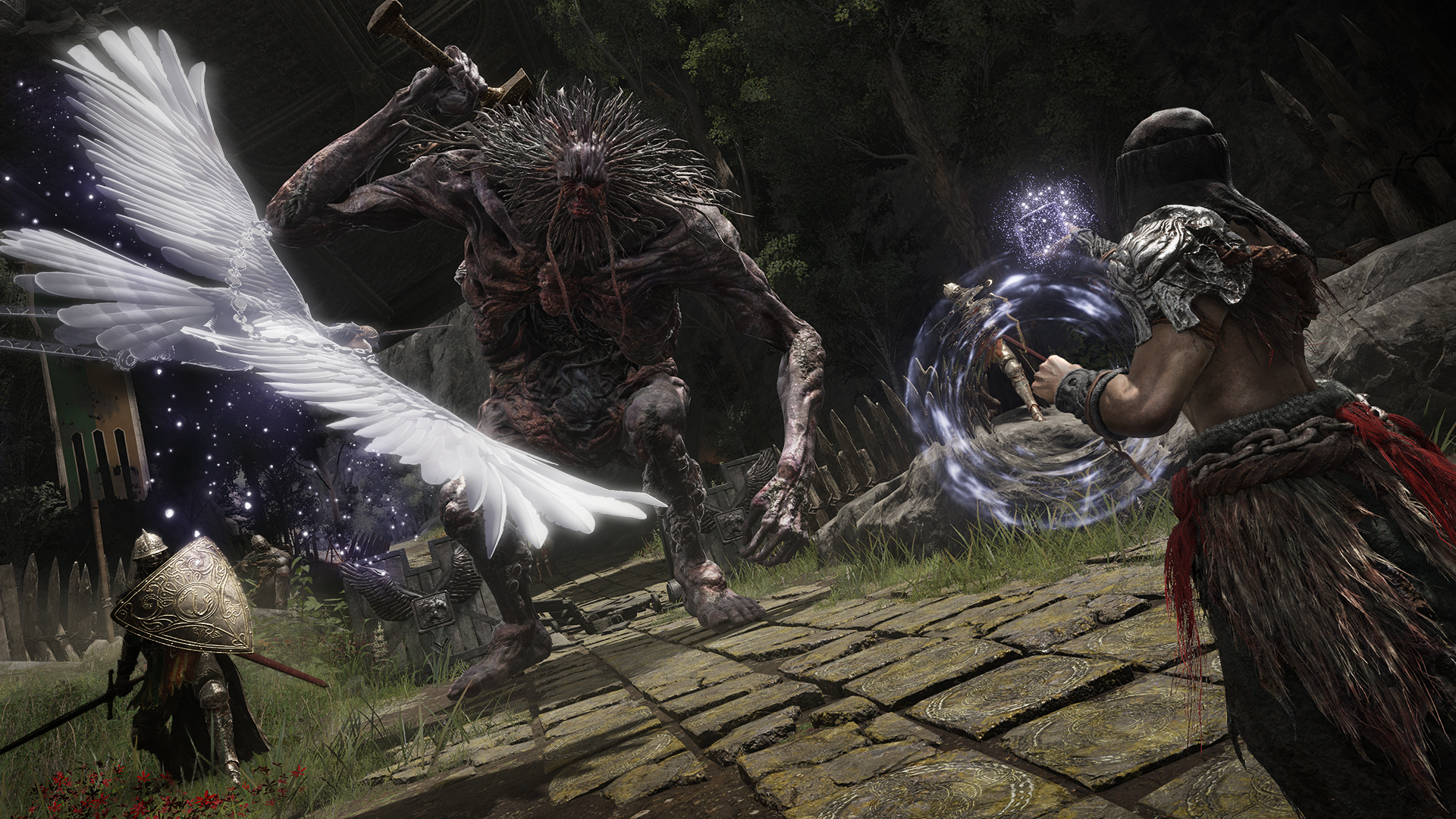
The open world doesn’t just add a remarkable sense of exploration to Elden Ring, but also fixes one of my biggest issues with previous Souls games: progression blockers. If you stumble upon a section or boss in Elden Ring that you’re struggling to overcome, you don’t have to waste hours getting frustrated. You can just wander off in a different direction and see what you can find.
In previous Souls games, I’ve often reached a challenging boss that I didn’t feel quite ready to fight. At that point, my two options basically boiled down to attempting the boss for hours on end, or tediously replaying previous sections to level up. Neither option was very enticing.
Elden Ring completely removes that no-win situation. If the game’s first mandatory boss Margit the Fell Omen is kicking your butt, head South of Limgrave and explore the massive (completely optional) Weeping Peninsula region, which offers its own mini-dungeon and optional set of bosses. That’s a level of freedom that no other Souls game has offered.
Elden Ring makes hard a little easier
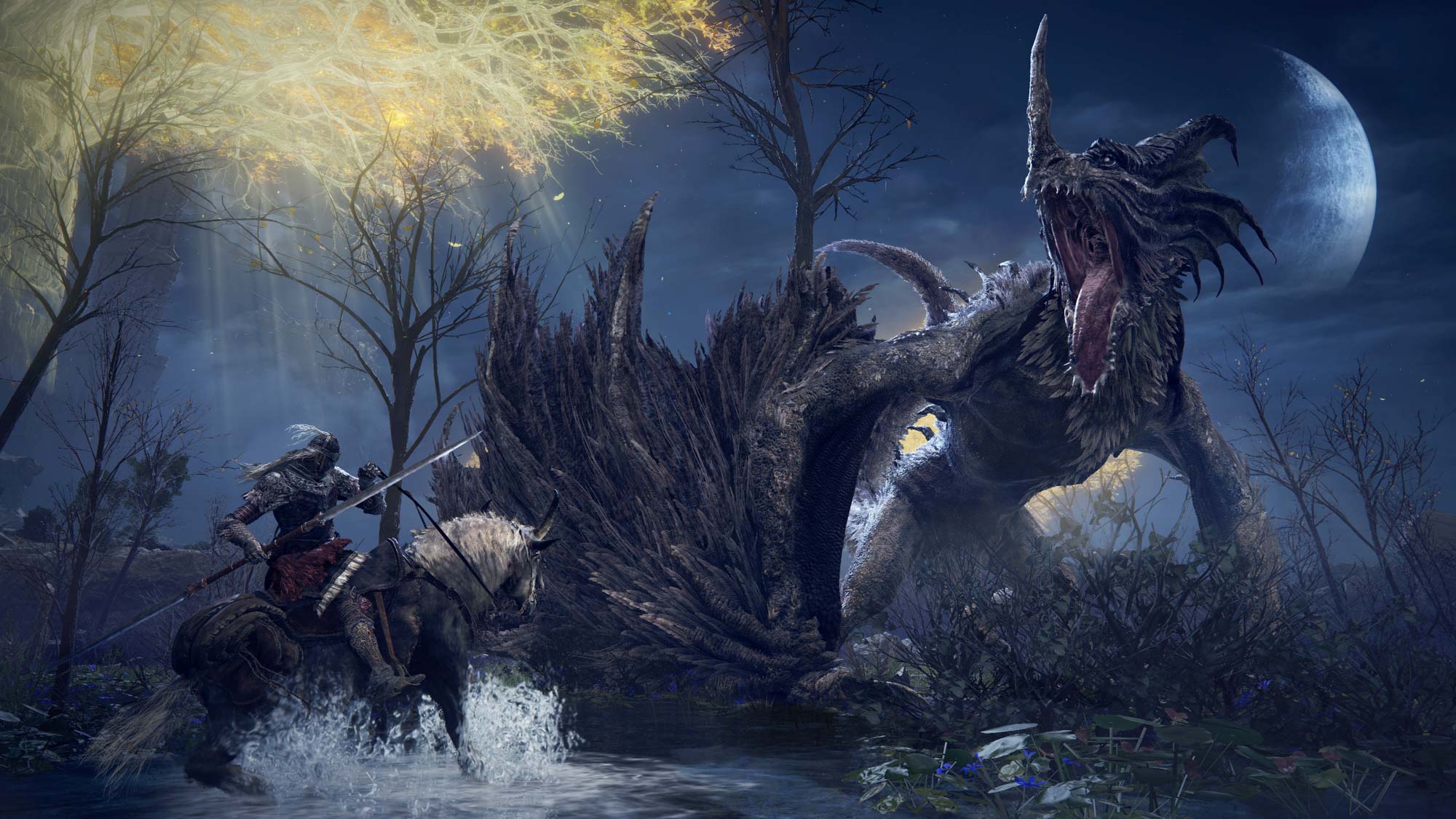
Just to make it abundantly clear, Elden Ring is a tough game. You won’t hear me arguing to the contrary. Just like every other Souls game, you are going to die a lot in Elden Ring. Even basic enemies can vanquish you with just a few strikes if you’re not paying close attention.
However, From has made a few small tweaks in Elden Ring that tip the odds in the player’s favor. The first is the generous placement of Sites of Grace. These are essentially respawn spots where the player returns after death.
The original Dark Souls is fairly stingy with its bonfires (its version of Sites of Grace). Even worse, the first few Souls game had a nasty habit of not placing respawn sites within close proximity of boss fights.
This created frustrating moments where you’d have to navigate around dozens of smaller enemies just to get back to the boss that killed you, only to die again, and have to repeat the whole tedious process. I still have nightmares about the boss run to fight Pontiff Sulyvahn in Dark Souls 3.
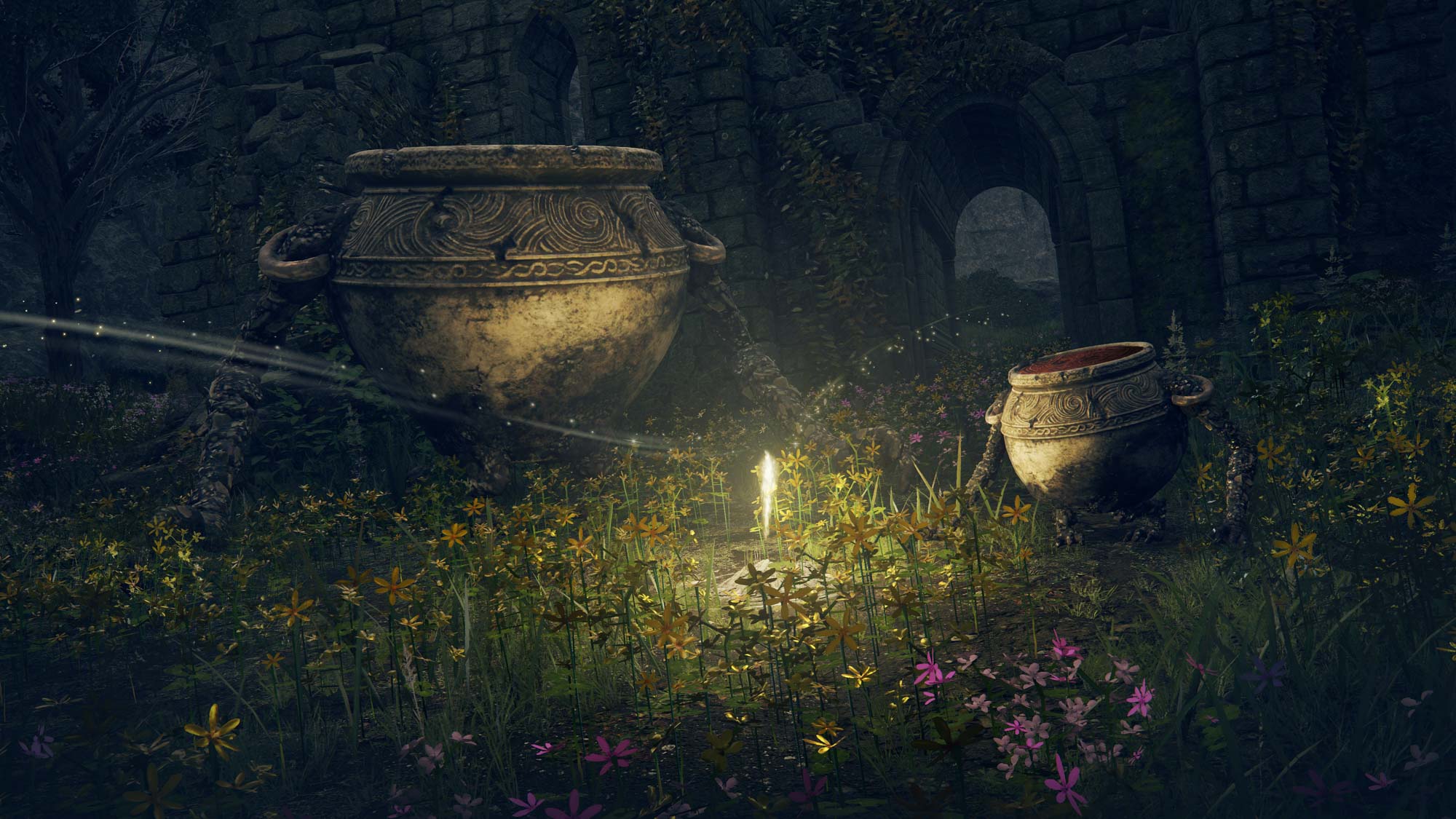
In Elden Ring, this is far less of a problem, as you can find Sites of Grace all over the place, especially near critical areas. For example, there is one located literally seconds from the area where you face Margit. This made dying over and over again to the boss far less frustrating, as I face him again within 30 seconds (even less, if you’re playing on PS5).
Early on, you get the ability to summon spectral spirits to aid you in battle, courtesy of a mysterious witch. Previous Souls games have allowed you to invite a co-op partner to help (as does Elden Ring), but these spirits are even more convenient to call upon.
The spirits are pretty powerful too, and can make some of the early-game bosses a cakewalk. In fact, I beat one boss without taking a single hit just because my pack of spirit wolves kept them distracted long enough for me to perform a couple of devastating backstabs.
As noted, I’m not suggesting that FromSoftware has dramatically lowered the difficulty of Elden Ring compared to other Souls games. But the developer has ensured that the game’s brutal challenge doesn’t feel as insurmountable as it has previously.
PSA: Elden Ring isn’t for everyone
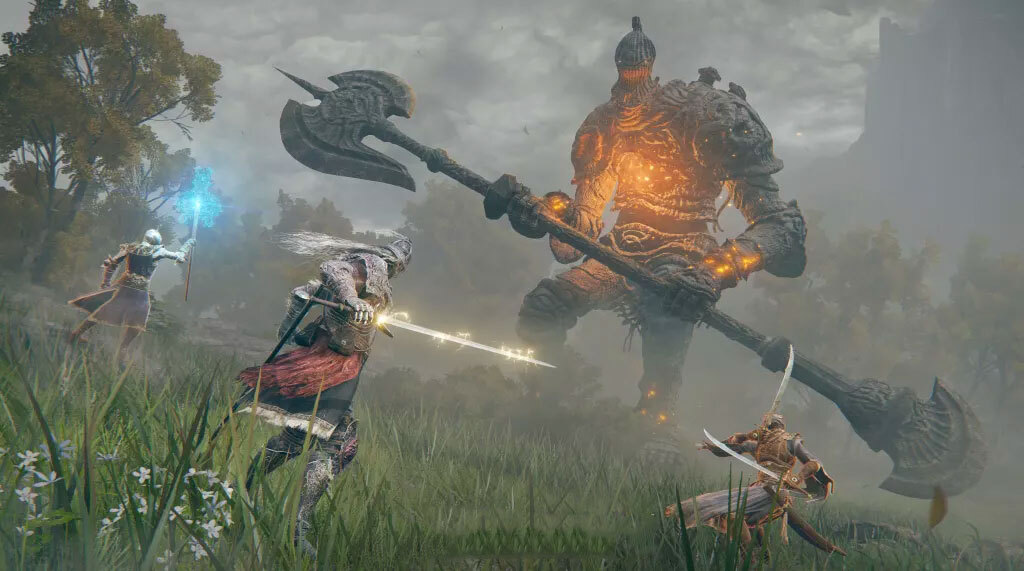
Recently, I've seen a few prominent industry voices push the idea that Elden Ring is a Souls game for people who don’t like Souls games. I strongly disagree with this take, however. As I've noted, Elden Ring is, for all intents and purposes, Dark Souls 4.
Extremely difficult enemy encounters, a drip-fed story that raises more questions than it answers, a lack of explanation for basically every item you pick up and a highly methodical pace in combat — it's all here in Elden Ring. This isn’t the wheel reinvented; it’s just refreshed with some new rims, and slightly more durable rubber.
If you’ve played the likes of Dark Souls and Bloodborne and utterly loathed them, I’m fairly confident you’ll feel the same way about Elden Ring. However if, like me, you’ve always appreciated Souls games on paper, but they've never quite clicked in practice, then Elden Ring could be exactly what you’ve been waiting for.
Sign up to get the BEST of Tom's Guide direct to your inbox.
Get instant access to breaking news, the hottest reviews, great deals and helpful tips.

Rory is an Entertainment Editor at Tom’s Guide based in the UK. He covers a wide range of topics but with a particular focus on gaming and streaming. When he’s not reviewing the latest games, searching for hidden gems on Netflix, or writing hot takes on new gaming hardware, TV shows and movies, he can be found attending music festivals and getting far too emotionally invested in his favorite football team.
